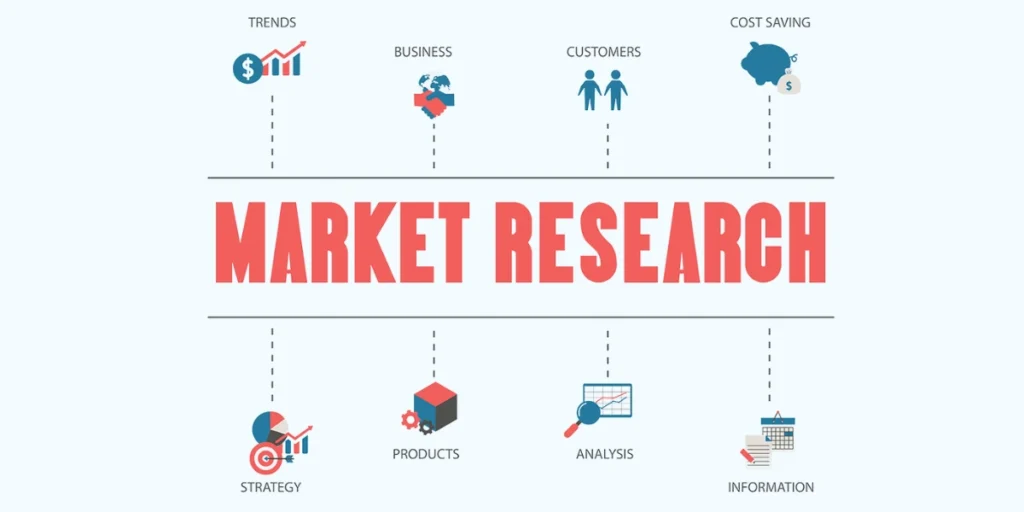Table of Contents
ToggleStarting a business is exciting, filled with possibilities, and the potential to bring your vision to life, but to be honest it’s also risky and can feel overwhelming at times.
You may have an idea that feels groundbreaking or revolutionary, but how can you be sure it’s worth investing your time, energy, and resources into?
After all, even the most innovative ideas can fall flat without proper groundwork.
This is where business idea validation becomes essential. It’s not just about having confidence in your concept it’s about putting it to the test in real-world conditions to assess its feasibility and market potential.
By thoroughly evaluating, testing, and refining your idea before fully committing, you can save yourself from costly mistakes and unnecessary stress. It’s about working smarter, not harder.
In this blog, we will tell you a human-centered, practical approach to evaluating your startup idea. Whether you’re a first-time entrepreneur or someone looking to launch their next venture, these steps will help you build a strong foundation.
Let’s explore how you can take a promising concept and shape it into a successful, thriving business.
Why Business Idea Validation Matters

Imagine launching a product only to find out that no one wants it. Frustrating, right? Business idea validation helps you avoid this scenario by answering critical questions like:
- Does your idea solve a real problem?
- Is there a market for it?
- Will people pay for your solution?
Validation gives you confidence, reduces risks, and increases your chances of success. Plus, it can help attract investors by proving that your idea is more than just a perception.
Step-by-Step Guide to Validating Your Business Idea
Let’s break down the process into actionable steps. Each step brings you closer to understanding whether your idea is viable and how to improve it.
1. Start with Self-Reflection

Before seeking external feedback, take a moment to reflect. Ask yourself:
- Why am I passionate about this idea?
- What problem does it solve?
- Who would benefit from this solution?
- How is it different from existing products or services?
Being honest about your motivations and understanding your idea’s unique value is a essential first step in the validation process.
2. Conduct Market Research

Market research is like taking the pulse of your industry. It helps you understand demand, competition, and customer needs. Here’s how to do it effectively:
- Identify Your Target Audience: Who will buy your product or service? Consider age, location, income level, and interests.
- Analyze Competitors: Study businesses that offer similar solutions. What are they doing well? What gaps can you fill?
- Look at Trends: Use tools like Google Trends or industry reports to spot emerging opportunities.
Pro Tip: Don’t depend on online data. Talk to potential customers and other businessmen to get real insights.
3. Gather Customer Feedback

You might think your idea is amazing, but what do potential customers think? Their feedback can help you refine your concept and address any blind spots.
- Surveys and Polls: Use tools like Google Forms or SurveyMonkey to ask targeted questions.
- Interviews: Conduct one-on-one interviews to dive deeper into customer needs and preferences.
- Social Media: Platforms like Twitter, LinkedIn, and Facebook are great for gathering quick opinions.
4. Create a Minimum Viable Product (MVP)

An MVP is a basic version of your product or service that allows you to test your idea with minimal investment. The goal is to gather insights quickly and cheaply.
For example:
- If you’re launching an app, build a prototype with essential features.
- If it’s a physical product, create a simple version using affordable materials.
Benefits of an MVP:
- You can test functionality and user experience.
- You’ll get real feedback from early adopters.
- It helps identify potential improvements.
5. Test the Market with a Pilot Launch

If your MVP performs well, consider a small-scale launch. This allows you to test your idea in a real-world setting without going all in.
- Choose a Niche Market: Focus on a specific segment of your audience.
- Monitor Results: Track sales, customer feedback, and engagement.
- Adjust as Needed: Use the insights to refine your product, pricing, or marketing strategy.
6. Evaluate Financial Feasibility

Even the best ideas need to make financial sense. Evaluate the costs involved in bringing your idea to life and the potential revenue it can generate.
- Calculate Costs: Include production, marketing, staffing, and operational expenses.
- Set Pricing: Research what customers are willing to pay. Make sure your pricing covers costs and leaves room for profit.
- Estimate Break-Even Point: How many sales will it take to cover your initial investment?
Common Mistakes to Avoid
While validating your business idea, be mindful of these pitfalls:
1. Relying Only on Friends and Family for Feedback
Your loved ones may be supportive, but they might not give you objective feedback. Seek insights from unbiased sources, like potential customers or industry experts.
2. Ignoring Competitors
Competitor analysis isn’t about copying it’s about understanding what’s already out there and finding ways to stand out.
3. Skipping the MVP Stage
Launching a full-fledged product without testing can lead to costly mistakes. An MVP lets you test the waters with minimal risk.
4. Underestimating Costs
Unexpected expenses can derail your plans. Be thorough when calculating costs and have a contingency fund.
When to Pivot or Persevere
Business ideas validation isn’t just about finding flaws it’s also about recognizing potential. If feedback suggests major changes, don’t be afraid to pivot. On the other hand, if your idea shows promise with minor tweaks, persevere.
Signs You Should Pivot:
- Consistent negative feedback.
- Lack of market demand.
- Financial infeasibility
Signs to Persevere:
- Positive customer response.
- High engagement during the pilot launch.
- A clear path to profitability.
Conclusion
Business idea validation is a journey of discovery. By taking the time to test, gather feedback, and refine your concept, you set yourself up for long-term success.
Remember, every great startup begins with an idea but the ones that thrive are those that took the time to validate.
If you’re ready to move forward and need expert guidance, Vicino is here to help. Our team specializes in startup strategies and can support you every step of the way. Reach out today and turn your idea into reality!





